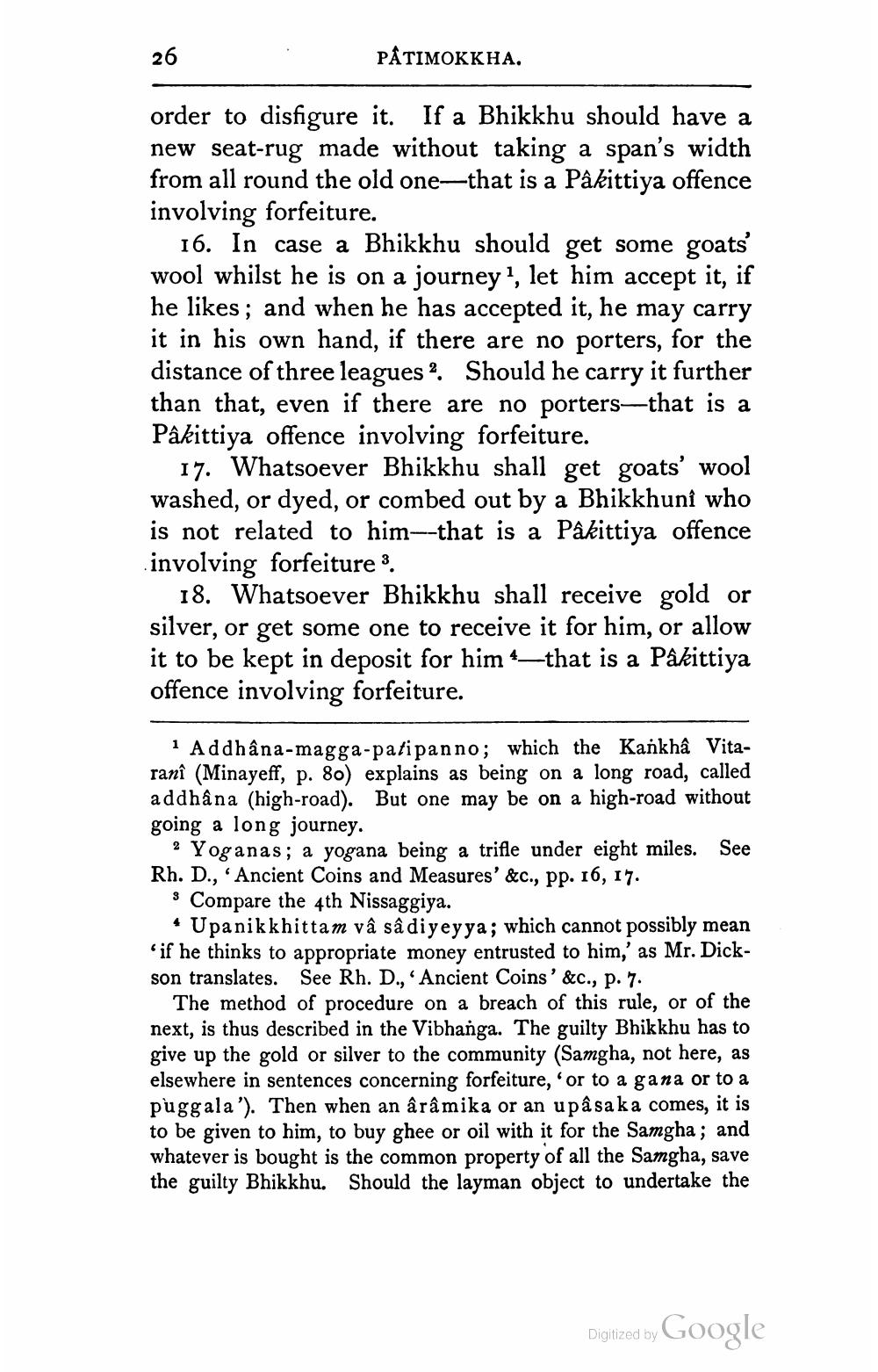________________
PATIMOKKHA.
order to disfigure it. If a Bhikkhu should have a new seat-rug made without taking a span's width from all round the old one-that is a Pâkittiya offence involving forfeiture.
26
16. In case a Bhikkhu should get some goats' wool whilst he is on a journey 1, let him accept it, if he likes; and when he has accepted it, he may carry it in his own hand, if there are no porters, for the distance of three leagues 2. Should he carry it further than that, even if there are no porters-that is a Pâkittiya offence involving forfeiture.
17. Whatsoever Bhikkhu shall get goats' wool washed, or dyed, or combed out by a Bhikkhuni who is not related to him--that is a Pâkittiya offence involving forfeiture 3.
18. Whatsoever Bhikkhu shall receive gold or silver, or get some one to receive it for him, or allow it to be kept in deposit for him that is a Pâkittiya offence involving forfeiture.
1 Addhana-magga-patipan no; which the Kankhâ Vitaranî (Minayeff, p. 80) explains as being on a long road, called addhâna (high-road). But one may be on a high-road without going a long journey.
2 Yoganas; a yogana being a trifle under eight miles. See Rh. D., Ancient Coins and Measures' &c., pp. 16, 17.
3 Compare the 4th Nissaggiya.
Upanikkhittam vâ sâ diyeyya; which cannot possibly mean 'if he thinks to appropriate money entrusted to him,' as Mr. Dickson translates. See Rh. D., 'Ancient Coins' &c., p. 7.
The method of procedure on a breach of this rule, or of the next, is thus described in the Vibhanga. The guilty Bhikkhu has to give up the gold or silver to the community (Samgha, not here, as elsewhere in sentences concerning forfeiture, 'or to a gana or to a puggala'). Then when an ârâmika or an upâsaka comes, it is to be given to him, to buy ghee or oil with it for the Samgha; and whatever is bought is the common property of all the Samgha, save the guilty Bhikkhu. Should the layman object to undertake the
Digitized by Google




